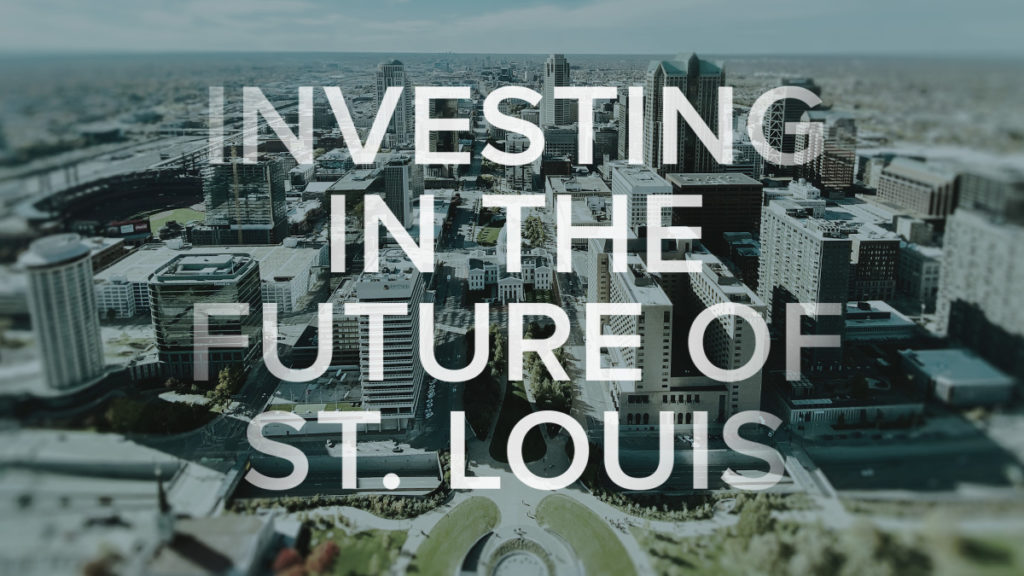

On April 26 at the St. Louis Zoo, Beyond Housing sponsored an event hosted by the St. Louis Business Journal called Once and for All: The Role of Business in Moving St. Louis Forward.
The event featured a discussion about why investing in the future of the St. Louis region is so important. Panelists included Rich Liekweg from BJC, Orvin Kimbrough from Midwest BankCentre, Todd Schnuck from Schnuck Markets, Valerie Patton of Greater St. Louis, Inc., John Berglund of the StarWood Group, Robert Bobroff of the St. Louis Business Journal and myself.
It was a great conversation. Each of these leaders are passionate about the success of the greater region and understand the need to invest in the future of St. Louis.
You may wonder why a nonprofit organization is joining the discussion on our region’s business and economic challenges. The answer is, as I pointed out during April’s event, our greatest business and economic challenges are the result of our complex social challenges and our lack of effectively addressing them.
Take a look at the St. Louis Business Journal’s Advance STL survey. Nearly all of the biggest challenges identified by subscribers are a by-product of our persistent, complex social issues.
It’s not as if we have not invested in St. Louis or made substantial progress. Our prominence in life sciences, geospatial, financial and other industries has grown significantly. We have made substantial investments in commercial development and upgrades to our major cultural institutions. All of these things are greatly needed and desired.
In my last article, I asked, with all of this investment and progress, why do our core challenges remain as formidable as ever?
No matter what we build, there continues to be a crack in our region’s foundation. There is a limit to our region’s potential for growth until we address the underlying issue—our high concentrations of poverty and many communities in decline.
All the research from Washington University in St. Louis, University of Missouri-St. Louis, Forward Through Ferguson, Greater St. Louis, Inc., clearly points to what we intuitively know: The extreme disparities within our under-resourced, predominantly Black communities have placed considerable barriers that prevent thousands of St. Louisans from participating in our economy and created severe social strain on our region—all of which have made the region far less conducive to growth and a less than ideal environment for business.
All of this is why Beyond Housing launched Once and for All, an effort focused within the Normandy schools footprint that has the highest concentration of poverty in the Missouri side of the Greater St. Louis area.
This effort utilizes an innovative model based on decades of research and insights from national thought leaders on the successes and failures of previous efforts to transform under-resourced communities and effectively bring people into the economic mainstream.
The model is also differentiated from previous efforts by recognizing that complex social issues cannot be effectively addressed through simplistic solutions. Creating real change requires a comprehensive, multipronged approach addressing multiple, interrelated needs.
The strategic underpinnings and scope of this effort are greater than what can be summarized here.
What I’d like to focus on is the concept of “investing.” If we are going to create a stronger St. Louis region that allows for greater growth and opportunity, it’s vital we begin investing in people and places we haven’t historically invested in.
To do this effectively, we must understand this is not about traditional philanthropy—it is about investing in the future of our region.
An IPO for STL
Toward the end of the event in April, I unveiled a groundbreaking new addition to Once and for All—an initial public offering (IPO) for investing in the future of St. Louis.
Yes, it is as bold and different as it sounds. Here are just a few reasons why the IPO framework is right for addressing our challenges:
I truly believe our greatest challenges are the key to our greatest opportunities. St. Louis’ challenges are significant, but they are not unique. This is an opportunity for St. Louis to reinvent itself on a national stage and become a beacon of innovation for other metro areas to follow.